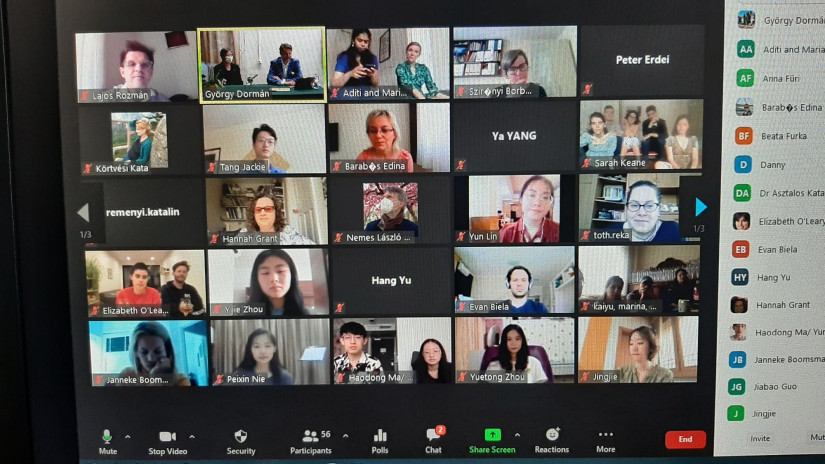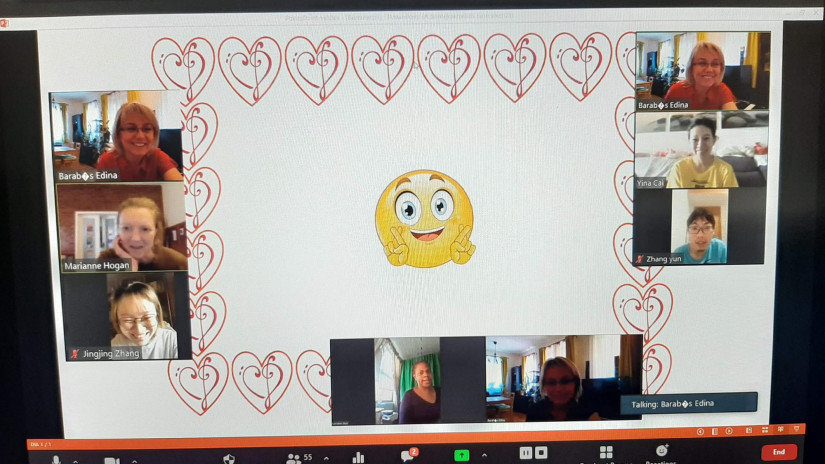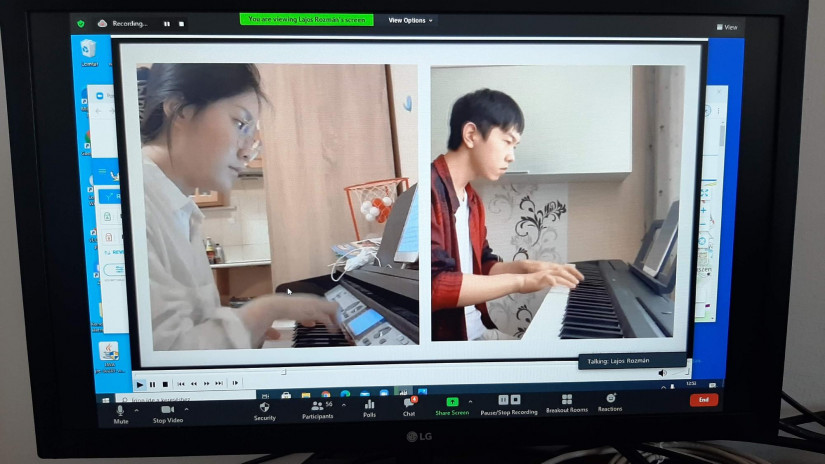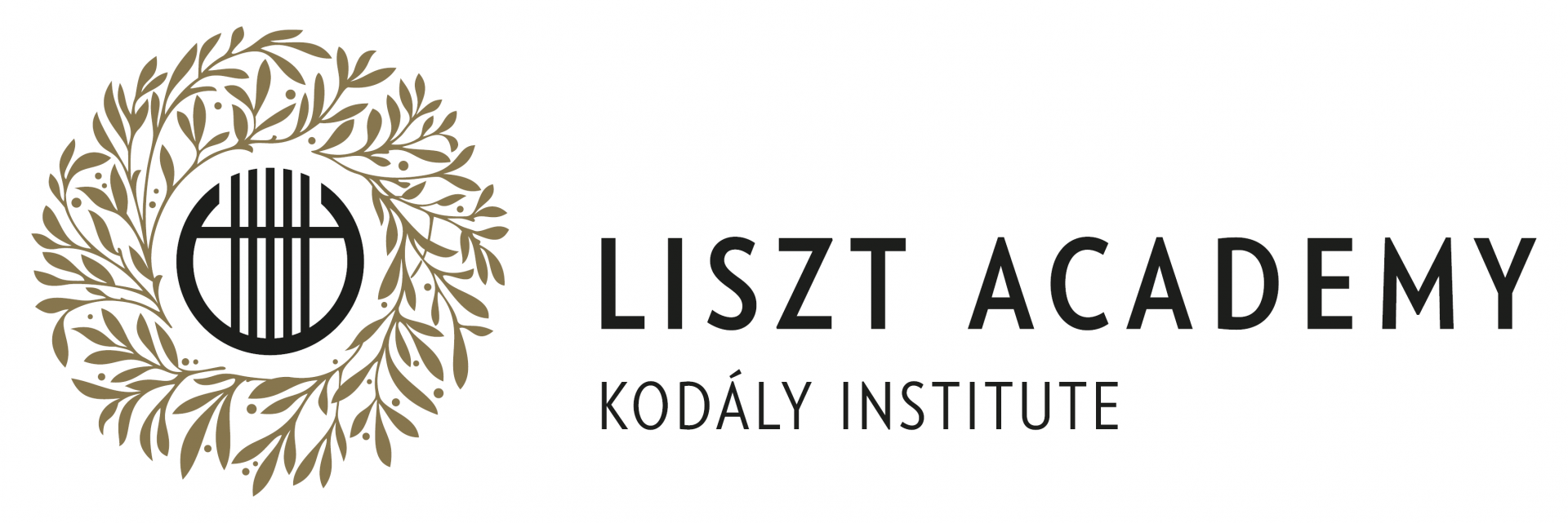Closing of the 2020-2021 Academic Year
The Kodály Institute held its Closing Ceremony of the Academic Year 2020-2021 on 28 May in the ceremonial hall of the Calvinist Old College and online. Due to the current COVID situation, only 20 people could attend personally, the rest could follow the ceremony via Zoom.
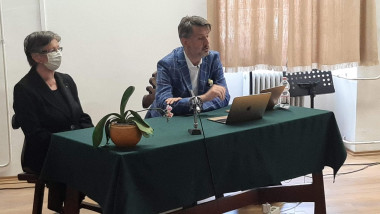
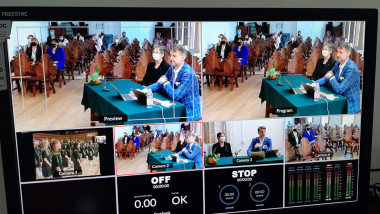
Director Dr László Norbert Nemes greeted everyone joining the ceremony. “Warm greetings to all of you from the ceremonial hall of the Old College that is functioning as the concert hall of the Kodály Institute during the renovation of our beloved home, the building of the former Franciscan monastery in Kéttemplom köz here in Kecskemét. … Although during the past three weeks, to our great enthusiasm, musical sounds started to fill the various rooms of this building we limited the attendance at this morning ceremony to maximum 20 people. Of course, I could imagine a merrier and more joyful ceremony than this one held on Zoom but that is not yet possible. Hopefully when we return in September, we shall be able to sing together. If that will be the case I promise that I am not going to prepare any speeches but instead we shall SING and maybe even DANCE. And I will hug every single one of you.”
We started this year in a blended way, students could join the classes online from all over the world, but we had the pleasure of having many students in Kecskemét in person. These first 2 months became our treasured time together as in November “music was completely silenced at the Institute for a long time” due to the restrictions in Hungary. However, thanks to the dedicated teachers and staff members at the Institute, the work continued online.
Dr Nemes shared some details regarding the renovation of the monastery, which started in 2018 and hopefully let the Institute move back and start the 2022-2023 academic year in its old place. Some exciting news were shared about the preparation of a new degree programme, Diplôme Supérieur, that is expected to be launched in 2022. This will be open for people with graduate degrees and with extensive teaching experience. Also, the Institute is in advanced negotiations with American, European and Chinese university partners, as well as other educational centres to develop an international certificate programme, the International Kodály Certificate, to be launched in the summer of 2022.
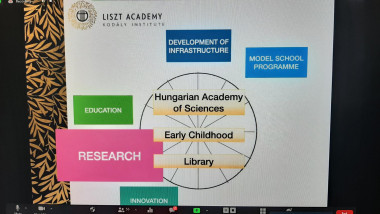
Even though the pandemic made us to move to online platforms, the hard work at the Institute continued in wonderful achievements. Such as launching the Move mi Music app in 2 major online stores: Google Play and App Store during the summer of 2020, the Kodály Seminar Online programme, making courses available online. Also, the research programme together with the Hungarian Academy of Sciences was completed in February, this year, and this cooperation hopefully will not end here as the Institute was asked to get involved in a new research about the prevention and treatment of reading difficulties. The research by Dr Kata Asztalos about developing a concept that can form the basis for the further development of the methodology of kindergarten music education based on Kodály's principles will carry on.
To build and extend our online community, we boosted the activity on social media platforms, such as the YouTube channel of the Institute and Facebook. The KodályHUB is growing fast, having registered users from more than 50 countries all over the world. The Kodály Institute does not only build virtual networks. The Institute has been awarded a significant funding through the Erasmus+ “Strategic Partnership Call in Response to Covid-19”. The two-year project called “PRESTO - Practices and Resources for Equipping Schools to Teach Music Online”. Together with choral, university and entrepreneur partners from Finland, Scotland and Ireland, this wonderful team will work to provide innovative solutions for building resilience and flexibility into a sector whose activities have been gravely impacted by the coronavirus pandemic.
Wonderful books, booklets were and are being published this academic year, including a volume on Jewish-Israeli Music compiled by Esther Hargittai, a completely new edition of Pál Kardos’ work, entitled “Intonation and Vocal Training in Choir”, as well as the Hungarian edition of Matthias Kadar’s, a Berlin-based composer, “Mach’ dein eigenes Lied!” for young students interested in composition.
Dr Nemes closed his speech with heartful words: “We, the third, fourth and fifth generations after Kodály’s, try to carry out our work to the best of our abilities; severely, self-driven, seriously and most importantly we try to share our passion about music with our own students. The task I would assign to the teachers of my generation and for the generations that follow ours is to walk in life with an open mind and notice what is valuable, interesting, exciting, creative and progressive in music pedagogy around us in Hungary and beyond. On this journey Kodály’s own habit of open-mindedness should inspire us all, as well as his magnetic personality that continuous to radiate inspiration even today.”
To close the event with happiness, teachers and students shared their memorable moments of this, again, special year.
